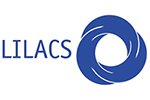ISSN Online: 2177-1235 | ISSN Print: 1983-5175
Showing of 1 until 1 from 1 result(s)
Search for : Erick Samuel Santos de Mello
Brachioplasty in ex-obese patients: proposed classification
ABSTRACT
Introduction: Surgical treatment of morbid obesity has resulted in a greater demand for repairing procedures for sequelae caused by weight loss. Brachioplasty treats excess skin and localized lipodystrophy in the arm and armpit regions. Procedures for brachial deformity correction are incomplete and result in unsatisfactory scars. Therefore, we propose an objective classification that suggests surgical treatment intending to obtain an adequate brachial contour. The aim is to propose a classification to assess lipodystrophy and skin flaccidity in the arms and armpits in ex-obese patients and suggest adequate surgical treatment.
Method: Literature review and classification proposal that suggests a surgical treatment option based on the preoperative physical examination. This classification is objective and comprehensive, facilitating standardization among plastic surgeons.
Results: The LC classification is divided into 7 types. Type L - lipodystrophy without sagging; Type C1 - proximal flaccidity without lipodystrophy; Type C2 - sagging up to the middle third without lipodystrophy; Type C3 - flaccidity up to the distal third without lipodystrophy; Type LC1 - sagging in the proximal third with associated lipodystrophy; Type LC2 - sagging up to the middle third with lipodystrophy; Type LC3 - sagging up to the distal third with lipodystrophy. Based on the classification, those labeled "L" benefit from liposuction, while those labeled "C" suggest surgical dermolipectomy.
Conclusion: The classification aligns preexisting deformities with the respective surgical modality for correction in each case; therefore, an objective and practical classification facilitates communication and guides the best treatment, providing the patient with an adequate brachial contour.
Keywords: Reconstructive surgical procedures; Arm; Weight loss; Lipodystrophy; Lipectomy; Classification
RESUMO
Introdução: O tratamento cirúrgico da obesidade mórbida implicou na maior demanda por
procedimentos reparadores das sequelas causadas pela perda ponderal.
Braquioplastia trata o excesso de pele e lipodistrofia localizada nas
regiões dos braços e axilas. Os procedimentos para correção de deformidade
braquial são incompletos e resultam em cicatrizes insatisfatórias. Sendo
assim, propomos uma classificação objetiva que sugere tratamento cirúrgico
com vistas à obtenção de um contorno braquial adequado. O objetivo é propor
classificação para avaliar lipodistrofia e flacidez cutânea na região dos
braços e axilas no paciente ex-obeso e sugerir tratamento cirúrgico
adequado.
Método: Revisão da literatura e proposta de classificação que sugere opção de
tratamento cirúrgico a partir do exame físico pré-operatório. Tal
classificação é objetiva e abrangente, facilitando a padronização entre os
cirurgiões plásticos.
Resultados: A classificação LC se divide em 7 tipos. Tipo L - lipodistrofia sem flacidez;
Tipo C1 - flacidez proximal sem lipodistrofia; Tipo C2 - flacidez até terço
médio sem lipodistrofia; Tipo C3 - flacidez até terço distal sem
lipodistrofia; Tipo LC1 - flacidez em terço proximal com lipodistrofia
associada; Tipo LC2 - flacidez até terço médio com lipodistrofia; Tipo LC3 -
flacidez até terço distal com lipodistrofia. Baseado na classificação, as
denominadas "L" se beneficiam de lipoaspiração enquanto as denominadas "C"
sugerem dermolipectomia cirúrgica.
Conclusão: A classificação alinha deformidades preexistentes com a respectiva modalidade
cirúrgica para correção de cada caso, portanto, a existência de uma
classificação objetiva e prática facilita a comunicação e orienta o melhor
tratamento, proporcionando ao paciente um contorno braquial adequado.
Palavras-chave: Procedimentos cirúrgicos reconstrutivos; Braço; Perda de peso; Lipodistrofia; Lipectomia; Classificação
 All scientific articles published at www.rbcp.org.br are licensed under a Creative Commons license
All scientific articles published at www.rbcp.org.br are licensed under a Creative Commons license






